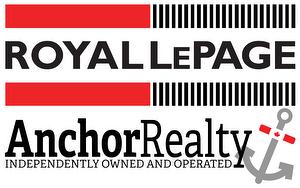


Condo Buying Guide - Guide to buying a condo in Halifax (HRM)
Halifax (HRM) Condominium Buyers Guide
A “condominium” refers to a form of legal ownership, as opposed to a style of construction. Condominiums are most often thought of as units in high-rise residential buildings, but they can be anything including apartment buildings, townhouses, cottages or even vacant land. The most common types in HRM are apartment style or townhouses.
When you purchase a condominium, you own a private dwelling called a “unit.” Your unit is registered in your name. You also share ownership of the common elements and assets of the building and community.
In addition to paying for your unit you also pay monthly condominium fees. This covers the upkeep and replacement of common elements whether you use them or not. The fees may also cover the corporation’s insurance policies, utilities and services such as snow removal. Part of those monthly fees may be put into a reserve fund to cover the estimated cost of future maintenance and repairs. Condominium fees may have to be adjusted from time to time to reflect the changing costs of goods and services and unexpected repairs.
When you become a condominium owner, you become a member of a condominium corporation and have certain rights and responsibilities. One of your key rights is the right to vote at general meetings on matters that affect the condominium. You are also eligible to help elect the board of directors.
The board of directors takes responsibility for the management of the corporation’s business affairs. The board is generally made up of individual condominium owners.
As an owner, it’s your responsibility to participate in the governing of the condominium. You can do this by attending general meetings and information sessions, serving on the board of directors or on a committee and voting. It’s also important to read the minutes of meetings and other information sent to members, such as the condo newsletter, as well as the corporation’s budget and financial statements.
You are now part of a community with shared responsibilities. If the parking garage in your development unexpectedly starts to crumble and there aren’t enough funds on hand to repair it, you along with all of the other owners must pay the increased condominium fees or a lump-sum payment to cover its repair. These are called "special assessments".
The board of directors is generally elected by, and made up of, individual condominium owners. Their number, qualifications, election, term in office, removal from the board and other related matters are outlined in provincial or territorial legislation and/or the condominium bylaws.
The board of directors meets regularly to handle the business affairs of the condominium corporation, including policy and finances, and makes decisions about the upkeep and repair of the common property.
 Most condominium corporations hire a property management company to handle their day-to-day operations, under the leadership of their boards of directors.
Most condominium corporations hire a property management company to handle their day-to-day operations, under the leadership of their boards of directors.
There are three terms you need to know about. Bylaws, Declaration and Estoppel Certificate.
Bylaws govern how the condominium corporation is run. They often address matters such as the election and practices of the board of directors, the collection of common expense contributions and how rules are passed.
The Declaration is a lengthy document which, among other things, sets out many of the rights and privileges which a unit owner enjoys. Similarly, it contains many restrictions which may affect your use of the unit. For example, the Declaration may state that the unit cannot be used for the purpose of running a business, or that no interior alterations may be made without consent, or it may restrict your right to lease your unit, or prohibit the ownership of pets.
When you purchase a condo in Halifax you will be provided with an estoppel certificate. An estoppel certificate is a binding statement prepared by the corporation that indicates the standing of common elements fees and reserve fund assessments against the unit, whether they are up to date, paid in advance, or in arrears. the financial standing of the corporation, the reserve fund balance, whether any major capital expenditures or increases in fees are planned, and if there are any law suits pending against the corporation
Advanced Search
The range between minimum price and maximum price is incorrect. Please submit the correct range.

